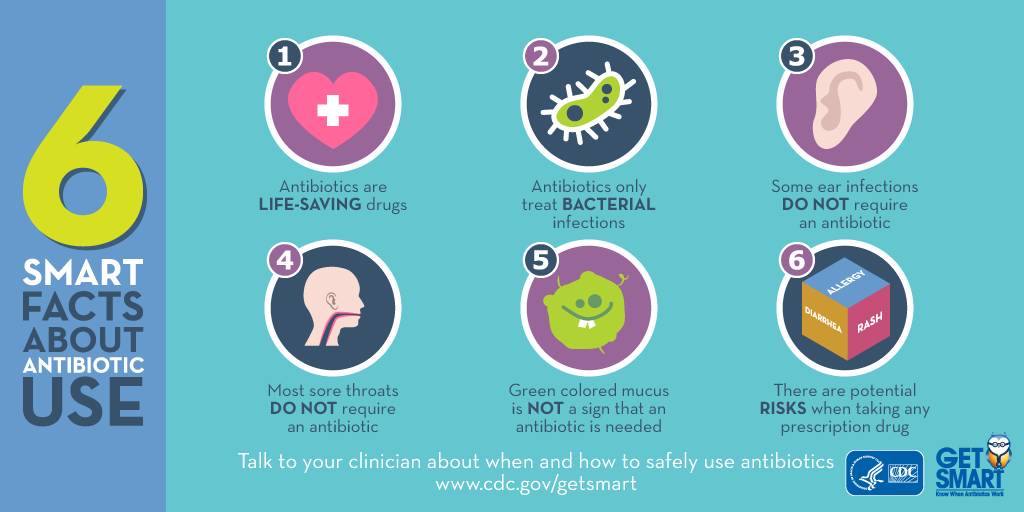6 Common Myths About Antibiotics You Should Know
Antibiotics are among the most powerful tools in modern medicine, saving millions of lives by treating bacterial infections. However, their misuse and misconceptions about their use have led to significant problems like antibiotic resistance. Let’s tackle six common myths about antibiotics and uncover the truth behind them to help you use them wisely.
Myth 1: Antibiotics Work for All Infections
The Truth: Antibiotics are only effective against bacterial infections, such as strep throat or urinary tract infections. They do nothing to combat viral illnesses like colds, the flu, or COVID-19. Taking antibiotics unnecessarily can lead to side effects like nausea, diarrhea, and even allergic reactions without helping you recover faster.
- What You Should Do: Consult your doctor if you’re unsure whether your illness is viral or bacterial. Viral infections usually improve with rest, hydration, and symptom management, while bacterial infections may require antibiotics.
Myth 2: It’s Okay to Stop Taking Antibiotics When You Feel Better
The Truth: Stopping antibiotics early, even if you feel fine, can leave some bacteria alive in your body. These surviving bacteria may mutate and become resistant to the medication, making it harder to treat future infections.
- What You Should Do: Always complete the prescribed course of antibiotics, even if your symptoms disappear. This ensures that all harmful bacteria are eradicated.
Myth 3: You Can Use Leftover Antibiotics for Another Illness
The Truth: Different antibiotics target different bacteria, so using leftover medication without a proper diagnosis can be ineffective or even harmful. It may not address your current infection and could contribute to resistance.
- What You Should Do: Never self-medicate with leftover antibiotics. Dispose of unused medications properly, and see a healthcare provider for a new prescription tailored to your current condition.
Myth 4: Antibiotics Are Harmless If Misused
The Truth: Misusing antibiotics doesn’t just harm you—it affects the entire community. Overuse or incorrect use of antibiotics fuels the rise of antibiotic-resistant bacteria, also known as superbugs. These are harder to treat and pose serious public health risks.
- What You Should Do: Use antibiotics only when prescribed by a healthcare provider, and follow the instructions carefully. Avoid pressuring your doctor to prescribe antibiotics if they aren’t necessary.
Myth 5: All Antibiotics Are the Same
The Truth: Not all antibiotics are created equal. Each type targets specific bacteria and works in different ways. Using the wrong antibiotic can lead to side effects without treating the infection effectively.
- What You Should Do: Trust your doctor to select the right antibiotic for your infection. They consider factors like the type of bacteria, your health history, and potential side effects before prescribing medication.
Myth 6: Antibiotics Don’t Affect Others
The Truth: Your antibiotic usage has a ripple effect. If bacteria become resistant to antibiotics because of improper use, these superbugs can spread to others, making infections harder to treat across the population.
- What You Should Do: Be an “Antibiotic Guardian†by using these medications responsibly. Encourage family and friends to follow proper practices as well.
The Bigger Picture: Combating Antibiotic Resistance
Antibiotics are a shared global resource, and their effectiveness depends on responsible usage. Misconceptions can lead to harmful consequences for individuals and communities alike. By dispelling these myths and adhering to medical guidance, we can ensure antibiotics remain a life-saving tool for generations to come.
Please follow up and share for more.


